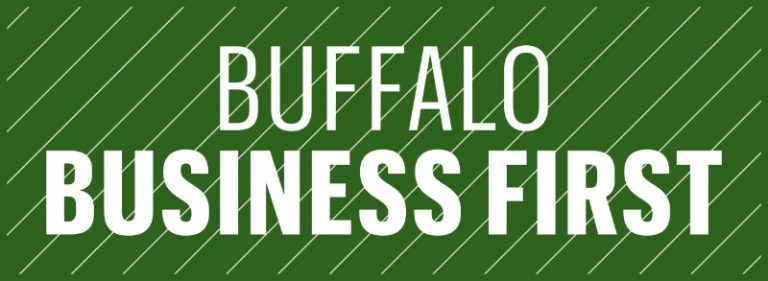Labor & Employment Law Visit Practice Area →
New York's Retail Worker Safety Act to take effect in March 2025
Governor Kathy Hochul’s 2026 Budget Introduces Several Employment-Law Changes
New York State Governor Kathy Hochul has introduced her Fiscal Year 2026 Executive Budget, proposing several changes that could impact employers throughout the state.
President Trump Executes Four Executive Orders Anticipated to Drastically Impact Private Sector DEI/DEIA Programs
During his first few days in office, President Trump executed four executive orders aimed at halting allegedly unlawful and discriminatory DEI/DEIA programs, policies, mandates, preferences, activities, guidance, regulations, enforcement actions, consent orders and requirements both inside and outside of the federal government.
New FTC Ban on Noncompete Provisions Cause Concern and are Under Challenge
On April 23, 2024, the Federal Trade Commission (FTC) passed a new rule banning all new noncompete clauses with all levels of employees. The rule as passed will allow only existing noncompete agreements with certain senior executives to survive. The rule defines such senior executives as individuals in a policy-making position earning a minimum of $151,164 per year. All other existing noncompete agreements will be unenforceable as of the effective date. The new rule is to become effective 120 days after publication in the Federal Register.
The New York Pay Transparency Act is Now in Effect
Earlier this month, the New York Pay Transparency Act went into effect. If you own or run a business with four or more employees in the State of New York, you must include a compensation range for all job openings, promotions, and transfers.
Employers Now Have a Much Heavier Burden in Proving “Undue Hardship” Related to Employee Requests for Religious Accommodation
On June 29, 2023, the Supreme Court of the United States issued a decision titled Groff v. DeJoy, which imposes a new, increased burden on employers who receive a request to accommodate an employee’s religious beliefs. The standard is no longer whether the request would impose more than a “de minimis” cost on the employer, but whether the employer would have to incur a “substantial” increased cost.
New York Lawmakers Add to the Uncertainty About the Future of Non-Compete Agreements
New York State lawmakers have passed a bill that, if signed into law by Governor Hochul, will ban non-compete agreements and provisions in New York State. This adds to the uncertainty about the future of non-compete agreements created by the pending FTC proposal to ban all non-competes, which has been delayed by the tens of thousands of comments received during the comment period. All of this leaves employers unsure on how to move forward on restrictive covenants.
Employers: Update Your Sexual Harassment Policies and Training Materials to Comport with New York State’s New Models
On April 12, 2023, the New York State Department of Labor posted new guidance and its updated Model Policy on Sexual Harassment Prevention and training materials.
Effective Immediately: New York State Will Now Require Employers to Provide Electronic Versions of all Mandatory Workplace Postings
On December 16, 2022, New York State amended New York Labor Law Section 201 to require employers to make mandatory workplace postings available to applicants and employees electronically. This means that in addition to posting physical notices, digital versions of the federal and state notices must also be made available through the employer’s website or by email.
Member Joseph Brown Featured in Buffalo Business First Article
On Thursday, May 5, 2022, Labor & Employment Member Joseph S. Brown was featured in Buffalo Business First regarding the employee monitoring law that is taking effect this week in New York State.
The Time Has Come: New York Electronic Monitoring Notice Law to Take Effect May 7, 2022
In November 2021, New York Governor Kathy Hochul signed legislation amending the state civil rights law to add a new provision requiring private employers with a place of business in New York who engage in electronic monitoring to notify workers of electronic monitoring of telephone, email, and internet access and usage. This law goes into effect on May 7, 2022.
Update on OSHA’s COVID-19 Mandate: What New York Employers Need to Know
Labor & Employment attorney Joseph S. Brown provides an update on the OSHA COVID-19 mandate and what this means for New York private employers with one hundred or more employees.
PFL Amendments Expand Definition of Family Member and Offer Clarification on Intermittent Leave
Employers have been complying with New York State’s Paid Family Leave Act (“PFL”) since 2018. PFL mandates time off for employees to care for family members with serious health conditions, among other reasons. Last month, Governor Hochul enacted an amendment to PFL, to expand the definition of covered family members. Labor and Employment attorney Katherine L. Wood expands on this.
OSHA Unveils COVID-19 Rule For Private-Sector Workers: What your business needs to know
On November 4, 2021, the U.S. Occupational Safety and Health Administration (“OSHA”) issued a new Emergency Temporary Standard (“ETS”) “intended to establish minimum vaccination, vaccination verification, face covering, and testing requirements to address the grave danger of COVID-19 in the workplace.”
Employment and Business litigator Joseph S. Brown provides an overview of the basics of the ETS, an update on legal challenges to the rule, and what employers can do now to prepare.
NYS Department of Labor Issues FAQs on Employment Issues Related to Recreational Cannabis Use
Attorney Joe Brown summarizes the key takeaways from the recent FAQ document released by the New York State Department of Labor on cannabis and the workplace.
EEOC Releases Guidance on COVID Vaccine Mandates and Employer Incentives
New guidance released by the Equal Employment Opportunity Commission (“EEOC”) on October 13, 2021, discusses vaccine mandates and employer incentives for vaccination. The new guidance also discusses employer requests for vaccine confirmation and confidentiality of employees’ vaccine information. Attorney Katherine L. Wood advises on this guidance.
NY HERO ACT UPDATE: COVID-19 Designation Extended to October 31, 2021, New Guidance and Updated Model Plans
The Commissioner of Health has extended the designation of COVID-19 as a highly contagious communicable disease that presents a serious risk of harm to the public health under the New York Health and Essential Rights (“HERO”) Act until October 31, 2021. The New York State Department of Labor released updated Information & FAQs on the HERO Act and updated the Model Airborne Infectious Disease Exposure Prevention Plan. This alert summarizes these recent developments.
Joseph Brown Featured in Buffalo Business First Article on Mental Health in the Workplace
Labor and Employment Member Joseph S. Brown, Esq. was featured in an interview with Buffalo Business First for his input on various labor employment law scenarios related to mental health in the workplace.
Telework as a Reasonable Accommodation During COVID: EEOC Takes a Stance
Determining whether to grant a particular accommodation under the Americans with Disabilities Act (“ADA”) can be a tricky area for employers to navigate. Adding COVID-19 considerations to the discussion has complicated matters even further. Labor and employment attorney Katherine L. Wood examines a recent lawsuit filed by the Equal Employment Opportunity Commission (“EEOC”) that should be taken into consideration when analyzing whether to grant or deny telework accommodations.




